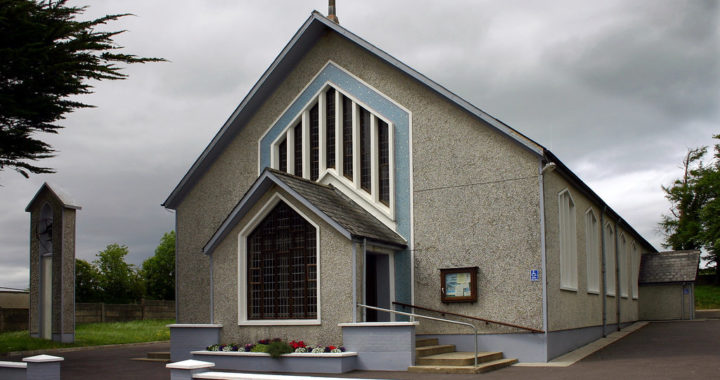Naturalization and Citizenship

Irish citizens are formal members of the Irish community, that is, the Irish community living in Ireland and the Irish community living abroad. Being an Irish citizen means that you are legally recognised as being a national of Ireland and a citizen of the European Union.
Important notes
Eligibility
- Adult (above 18 years)
- Young Adult (age 18-23 in third-level education and still dependent on their family)
- Minor (Child, less than 18 years)
- Adult (non-EU/EEA and non-Swiss nationals)
- Adult (UK, EU/EEA and Swiss nationals)
- Spouse/Civil Partner of Irish Citizen
- Refugees
Important notes
- fee
The statutory application fee of €175 in the form of a Banker’s Draft only, made payable to the Secretary General, Department of Justice and Equality. Postal orders, personal or business cheques are not acceptable. This fee is non‐refundable and is required for each application for a certificate of naturalisation.
- passport
The original of your current passport and any previous passports valid during periods of residence in the State, together with a photocopy of the biometric page of each passport.* All passports will back to you within three weeks of submission, so don’t book any flight.
- Photos
Two colour passport photographs taken within 30 days of the date of application, signed and dated on the back by the witness who signs the statutory declaration to confirm they are your photograph.
- proofs of residence
Three different proofs of residence for each year of residence claimed, showing your name and address and date of issue, e.g.
- mortgage/rent agreement,
- household bills (gas, electricity, phone or cable/satellite TV),
- bank statements,
- revenue letters,
- social welfare,
- GP letter or hospital letter of appointments
- letter from employment, etc.
Be sure to keep a copy of all of these to cover all years of residence. Also, be sure to add your spouse to the bills and bank statement so he/she can use it for his/her application
- Marriage certificate
Evidence of marriage to, or is the civil partner of, a deceased person who, at the date of death was an Irish citizen, if applicable. (Certified copies of certificates, court documents as applicable).
- Online residency checker. Not required for EU/EEA citizens.
An online residency checker is available to enable you to check if you satisfy the residency conditions for naturalisation before applying. You are required to use the Online Residency Checker, available at
www.inis.gov.ie/en/INIS/Pages/Naturalisation_Residency_Calculator
This will indicate whether you satisfy the naturalisation residency conditions and, if not, indicate how long you should wait before signing the Statutory Declaration and lodging the application. You are required to print a copy of the result and enclose it with your application. Some applications are ineligible as the applicant did not have the full required residency at the time of application. As each application incurs a €175 application fee, sending in an ineligible application is costly. Please note that residency is calculated back from the date of application, i.e. the date you have signed the Statutory Declaration on the application form.
A printout from the online residency checker showing the above permissions. The printout must confirm that you are eligible to apply. If it does not your application will be deemed ineligible. Do not add in days not covered by permissions to try and satisfy the conditions as these will not be reckoned. See note below for more information.
- Residency permissions
If you are a non‐EU citizen and making a standard application based on having 5 years residence, you will need
- a) Evidence of your residency permissions that cover a CONTINUOUS PERIOD of 365/366 days in the year immediately prior to the date of application (date of Statutory Declaration) AND
- b) periods totalling 4 years in the 8 year period before that (i.e. a total of 5 x 365 days plus one day for each permission period in which 29 February falls (leap year).
- c) Residency permissions are evidenced by stamps in your passport, while additional periods may be covered by letters issued by the Irish Naturalisation and Immigration Service granting you permission for a specific period from or to a specified date. You can request a letter from the Irish Naturalisation and Immigration Service showing you residence in the state for the last 9 years. The address is: Detective Superintendent, Garda national immigration bureau, 13-14 Burgh Quay, Dublin 2, D02XK70. They should reply within a month, so it is wise if you request the letter 2 months before your application submission.
- d) Please note that any failure to register with the Garda national immigration bureau within a reasonable period will be taken into account in assessing your application.
- Absence from the state
All the arrangements are on the basis that the person with residence permission is also continually physically resident in the State. Where there are significant absences from the State during the currency of permission further enquiries and explanations may be necessary and your application may be refused.
If there is a gap in your application (for example, you left the country for a couple of years and back, you need to clarify the reason to leave the country and to show documents to prove where you resided.
It is now more evidence that they will ask for a police clearance certificate for such period of the gap. It is recommended to prepare it in advance from the country where you resided and verified from your embassy.
- Public Services Card (PSC)
As and from 19 September 2016 all applicants for a certificate of naturalisation aged 18 or over who are resident in the State must be registered with the Department of Social Protection for a Public Services Card (PSC). This is an important measure to identify the applicant, protect against fraud and identity theft and uphold the integrity of the Irish naturalisation process.
- Certified copies
- Where a certified copy is required, you must take your original certificates/documents to your solicitor, or a notary public, commissioner for oaths or peace commissioner and ask them to make a photocopy of each document and certify that it is a true copy of the original i.e. stamp and sign it “True copy of the original”.
William Mc Gill Commissioner Oat, 0862000000, you will pay 10 Euro for each stamp
- If certificates/documents are not in English or Irish, a translation by a professional translator is required. A copy of the translation, as well as the copy of the original document, must be provided. Please note that we may also seek to establish the authenticity of documents submitted with authorities of the issuing country. A translator or translation company with an established professional reputation and strong relationships with official organisations may qualify to make certified translations.
Kamal Translator: 0863336847
- Lost of identification documents
- In rare circumstances where an applicant cannot produce their current passport, or a previous passport, birth certificate or other supporting documents the applicant will be required to provide a full explanation. Such explanation should, where possible, be supported by satisfactory evidence that they have attempted to obtain such documentation and correspondence from the relevant authorities or embassy responsible for the issuing of passports and birth certificates in their country, clearly stating the reasons the documentation cannot be provided. INIS will consider the explanation given and, if satisfied it is for reasons genuinely beyond the applicant’s control, may suggest alternative means to the person to assist in establishing their identity and nationality.
- If you do not have your birth certificate (or marriage certificate/civil partnership registration if married to or are the civil partner of an Irish citizen) you should get it from the relevant authorities in the country where your birth and/or marriage/civil partnership was registered before making an application for a certificate of naturalisation. In certain limited and exceptional circumstances, a birth affidavit may be accepted in lieu of a Birth Certificate where you can show satisfactory evidence that the certificate is not available and cannot be obtained. If you are not in possession of or have lost, your birth certificate, an affidavit will NOT be accepted. You must obtain it from the relevant authorities before applying
- Registered letter
Always send your documents and requests by registered post (An Post) and always keep the receipt. Some applications may lost!!
- Dependent children
Dependent children, who entered the State with their parent(s) as part of a family unit may be covered by their parent’s permission for the purposes of this application while attending their school (up to 18 years)
This also may continue to be covered up to age 23 where they have been continuously dependent on their parents and progressed from secondary school in the State directly into third level education.
- Dependant young adults (18-23years)
A ‘dependant young adult’ is someone who depends on their parents for accommodation and general living expenses, ie they do not live independently.
You may apply for citizenship as a dependant young adult if you meet the eligibility requirements for an adult application (as above) and you:
- Are aged 18-23 when you apply
- Entered the State legally as part of a family unit
- Are currently attending secondary school in the State, or you went directly from secondary school into third level education in the State
- Are continuously dependent on your parents, ie you are not financially independent
Use Form 8 to make your application. If you apply, you should use your parents’ calculation of ‘reckonable residence’ in your application (as below).
- Student Visa
Student stamp is not calculated in towards the naturalization, however, if your spouse has a join spouse stamp depend on you, her or his stamp is still calculated towards the naturalization.
- Marriage application
If your civil partnership was registered in a country other than the State, then recognition of this relationship by the State is determined by reference to the Civil Partnership (Recognition
of Registered Foreign Relationships) Order 2010. You should satisfy yourself that your registered relationship is recognised before making an application based on being the civil partner of an Irish citizen.
Where the residency is in Northern Ireland, the evidence must be given of being lawfully resident in that jurisdiction for the period of 1 year immediately prior to the application and a further 2 years in the 4 year period before that, equalling 3 years in total, on foot of a permission granted by the immigration authorities of the United Kingdom,
- Court case
Applications, where the applicant has a case pending in the court system, will not be processed until the matter is concluded. Therefore, do not submit an application for naturalisation until the case is closed. So don’t let any issue to escalate and reach the court.
- Traffic offences
Any traffic offence includes payment of a fixed charge, just pay it and not mention it in your application. However, if it includes penalty points, you have to mention it and explain that you paid the charge and attach a copy of the payment.
Citizenship Quick Links
-
- Become an Irish Citizen by Naturalisation
- Naturalisation Residency Calculator
- Naturalisation Application Forms
- Citizenship Ceremonies
- Citizenship Law, Policy and Guidance
- Intention to Retain Irish Citizenship
- Renounce or Reacquire Irish Citizenship
- Revocation of Irish Citizenship
- Dual Citizenship
- Declaration of Residence
- Certifying a Document
- Change of Address
- Frequently Asked Questions
- Latest Citizenship News
- Contact Citizenship










